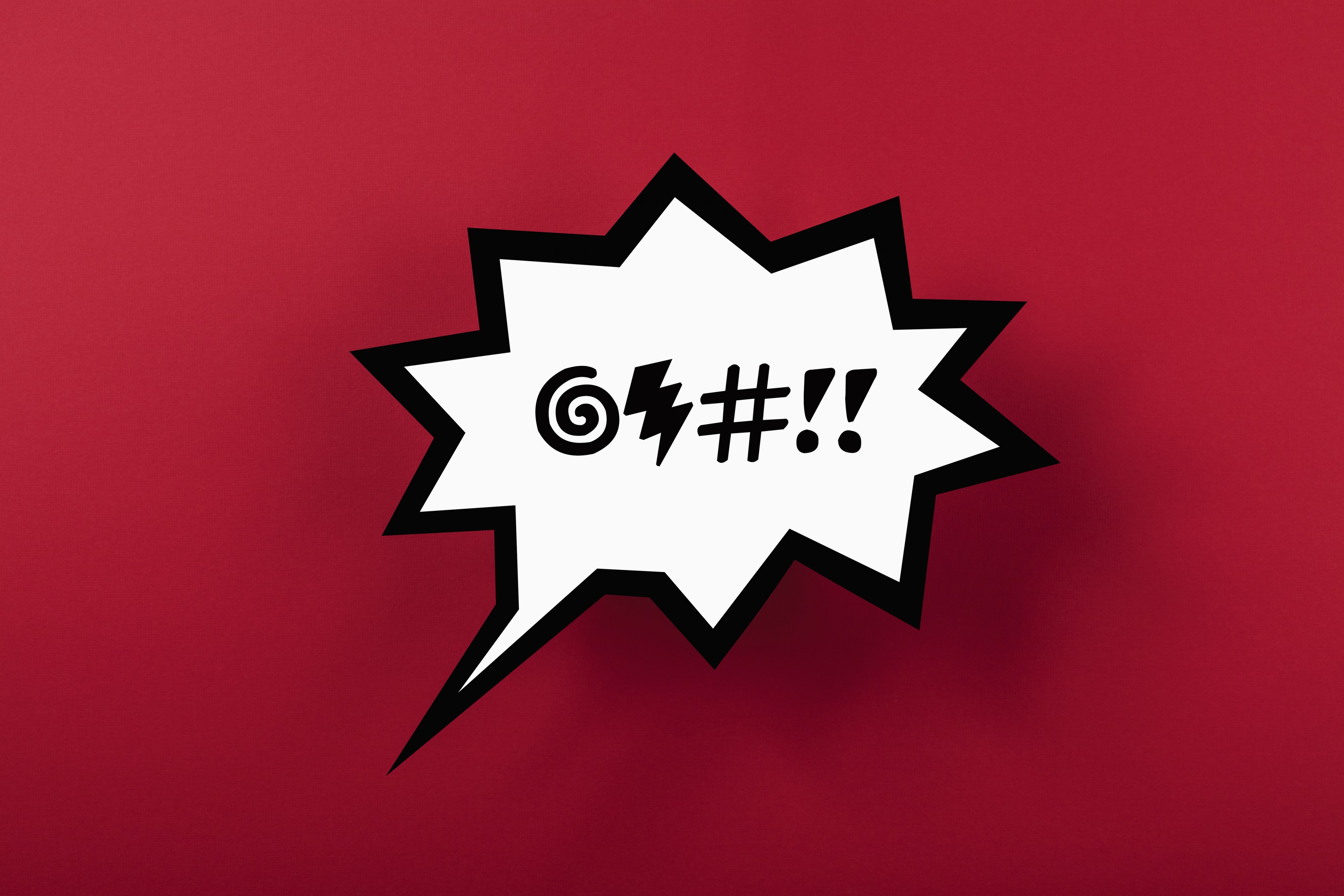What I tell my children about 'bad words'
There are no bad words. Only sensitive and less sensitive audiences.


A free daily email with the biggest news stories of the day – and the best features from TheWeek.com
You are now subscribed
Your newsletter sign-up was successful
It's a damn good time to be a four-letter word in America. Recently, just before President Obama revealed his softer side during a speech on gun control, he let his sailory side rip during an episode of Comedians in Cars Getting Coffee with Jerry Seinfeld.
"I curse," Obama said when asked how he blows off steam. "Bad stuff or stupid stuff is happening constantly every day. So you have to be able to just make fun of a lot of that… That's when cursing is really valuable."
You heard it here first, my friends: The expletive is on the bleeping rise, and I'm not just talking about my 10-year old bellowing along with "S.O.B.," the popular new throwback ditty by alternative radio darlings Nathaniel Rateliff & The Night Sweats. No, I'm talking about widespread institutional clemency on cussing.
The Week
Escape your echo chamber. Get the facts behind the news, plus analysis from multiple perspectives.

Sign up for The Week's Free Newsletters
From our morning news briefing to a weekly Good News Newsletter, get the best of The Week delivered directly to your inbox.
From our morning news briefing to a weekly Good News Newsletter, get the best of The Week delivered directly to your inbox.
First there was the study showing that swearing actually helps us manage pain (and if you've never spewed venomous verbal filth while midway through a two-minute plank, then you're really not taking full advantage of this discovery). In its wake came studies insisting that tossing off an occasional R-rated word helps you bond with friends, makes you more popular at work, and boosts your confidence.
Then just last month, Michigan repealed an outdated law that had long made it illegal to use "indecent, immoral, obscene, vulgar, or insulting language in front of women or children." But even as governor-sanctioned and long-stifled F-words rained down upon the Great Lakes State … I was getting my figurative mouth washed out with soap by a dirty-word detesting reader.
He objected to "profanity" in one of my articles and professed a preference for "critically thinking and articulate writers" instead. He didn't say which word(s) or which article(s) he was referring to, and I can't guess because I'm not allowed to publish anything really off color. But I admit to brushing up against the line sometimes.
Look, I'm no fan of anyone who slings the vulgar vernacular out of laziness. Skilled communicators don't shock an audience into paying attention; they earn every ear (or eye) with, say, stunning wit, unexpected courage, a gleaming argument. They do it by wielding something that's hard to come by — and street talk isn't.
A free daily email with the biggest news stories of the day – and the best features from TheWeek.com
Still, I won't be primming up my prose to satisfy this reader, for two reasons:
1. I do find that a well-placed linguistic indelicacy — a sweet little coarse verb or tawdry noun — can add real dimension to a sentence. Passion. Punctuation. Like a seven-part harmony you weren't anticipating but your ear locked onto and couldn't shake. Or a familiar flavor you weren't expecting to find in this dish but there it is on the back of your tongue and damn if it isn't delicious and you think you'll go back for another helping.
2. Science, yet again, has my back. The very latest study on "taboo language" shows that contrary to common assumption, the more swear words a person knows, the larger her vocabulary tends to be in general. It's true! I … well, I swear.
But this censuring has been a welcome reminder to heed my own advice — the advice I give my children when they ask about "bad words."
There are no bad words, I tell them. There are only sensitive and less sensitive audiences. Know your audience. Or be ready to get kicked in the crass.
This article originally appeared in The Santa Barbara Independent. It is reprinted with permission.
Starshine Roshell is a veteran journalist and award-winning columnist whose work has appeared in The Hollywood Reporter, New York Post and Westways magazine. She is the author of Keep Your Skirt On, Wife on the Edge and Broad Assumptions.
-
 The ‘ravenous’ demand for Cornish minerals
The ‘ravenous’ demand for Cornish mineralsUnder the Radar Growing need for critical minerals to power tech has intensified ‘appetite’ for lithium, which could be a ‘huge boon’ for local economy
-
 Why are election experts taking Trump’s midterm threats seriously?
Why are election experts taking Trump’s midterm threats seriously?IN THE SPOTLIGHT As the president muses about polling place deployments and a centralized electoral system aimed at one-party control, lawmakers are taking this administration at its word
-
 ‘Restaurateurs have become millionaires’
‘Restaurateurs have become millionaires’Instant Opinion Opinion, comment and editorials of the day